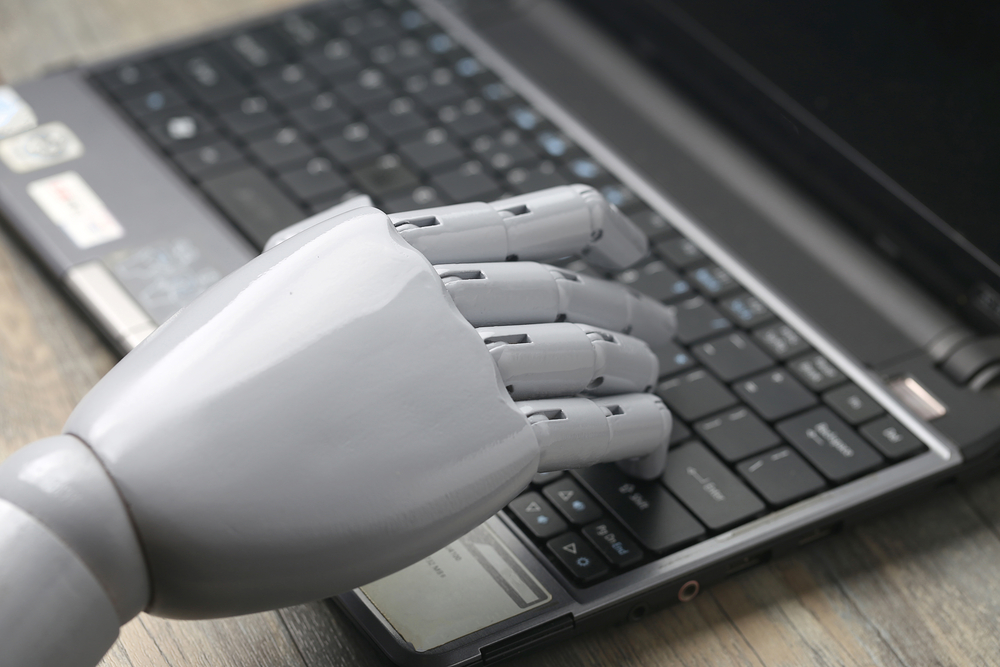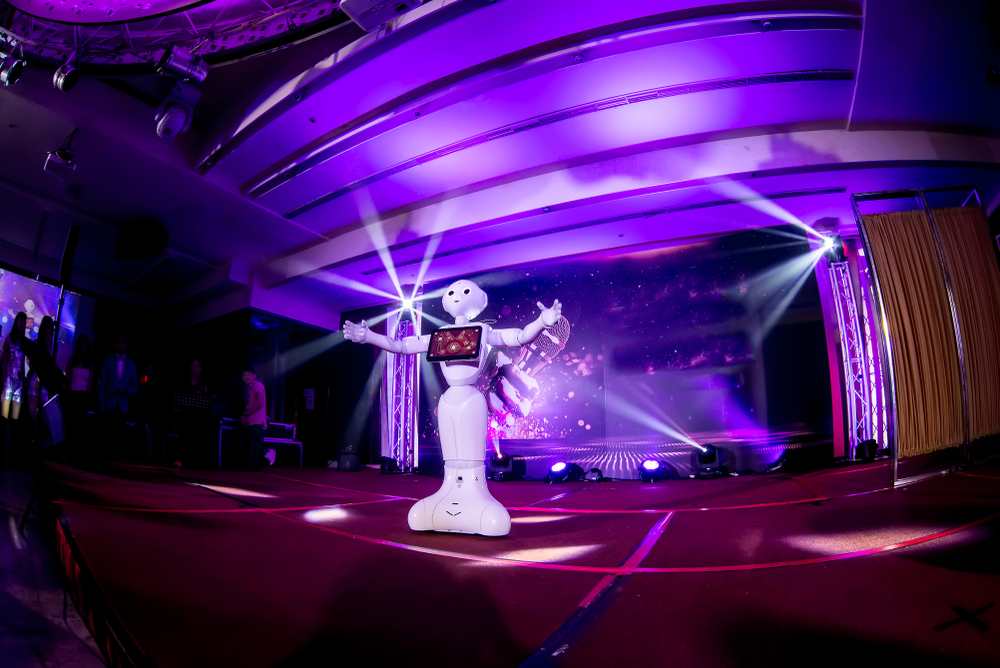
Features 09.05.2023
Which Jobs Are Safe from Artificial Intelligence? Spoiler: Not Many
Will robots and algorithms replace our jobs? Or are we simply overreacting to the latest tech trend?

Features 09.05.2023
Will robots and algorithms replace our jobs? Or are we simply overreacting to the latest tech trend?
According to the hype – and there’s lots of it – AI technology such as ChatGPT will become so advanced that it’ll take over everyone’s jobs. Convinced? Neither are we. The future the hype-mongers want you to fear is probably many years away because, as it stands, human expertise trumps AI almost every time.
With this in mind, we have planted our tongues firmly in our cheeks to look into the future and assess which jobs are safe from AI – and which aren’t.
As journalists, the Assured Intelligence team is cynical that AI will ever replace us – especially since the technology struggles with analytical articles or pieces that require a writer’s flair. However, just look at this article, which saw Callum Booth take on ChatGPT in a journalism challenge and win.

That said, confession time: we asked ChatGPT to write the opening of this article to see what it came up with. Given the nature of the piece, we decided to use it. And, we have to admit, it ain’t half bad.
There’s no denying that AI-driven journalism is starting to happen, with news outlets such as the Associated Press, MSN and CNET experimenting with the technology. However, as belts continue to tighten across the media world, Jake Moore, global cybersecurity advisor at ESET, thinks the next generation of news journalists’ jobs could be at risk. “News articles are already struggling to squeeze through the noise when time is precious, and news is fast.”
AI could fill this desire for quick-fix news, he says. “Some people just want short, sharp snippets filled with the basics and facts. Longer reads and analysis may take a little longer to learn, but information-based short pieces could be written by AI.”
Journalists need to brush up on new skills to go toe-to-toe with the bots trying to steal their jobs, Moore jests. “If journalists really want to hone their craft while they have time, maybe try TikTok while videos can still be made more quickly than a good quality deep fake.”
Arguably, just about anyone can call themselves a consultant, whether they are qualified or not. With this in mind, Moore thinks it’s a job that AI could fill. “Even the word fills people with cringe, so why not give this wishy-washy position to a bot,” Moore smirks.
“Consultants are very good at pointing out the obvious, making a 20-step plan, writing strategies and requesting huge amounts of money for telling you what you already know,” Moore argues. “Chatbots can do this but more cheaply and without that smug look when they present you with a marketing solution such as, ‘You should try Instagram’.”
AI consultants could undoubtedly make life easier for CEOs, quips Moore. “At least chatbots will cut straight to the chase and remove meetings about meetings. It might even give the job role some much-needed respect.” Ouch.
Boring contract writing be gone, because this is a job that AI can fill, experts predict. Lisa Forte, a founder at Red Goat Cyber Security, calls this “a perfect use of AI because the variables are more limited, accuracy is paramount, and the demand for creativity is lower than other tasks”.
The move to AI could also be amusing for the humans overseeing the job, as it could, of course, go very wrong. “It’s almost entertaining to envisage a future where we have two AIs battling out a contract negotiation,” Forte jests.
“Currently, when the number of variables and nuances involved shoot up, the AIs and large language models (LLMs) tend to struggle with the latter, often producing ‘hallucinations’ that get wild quickly. I’m not sure I would want that in a business contract,” Forte adds.
According to Adonis Celestine, director of automation at Applause, IT programmers’ jobs are at risk because of how working practices have changed.
He points out how the shift to new working methods, such as DevOps, has led to people performing multiple functions, creating a slew of generalist roles. This is the sort of thing that generative AI can easily perform, Celestine says.
Thankfully though, he thinks it’ll lead to demand for more specialist jobs. “Generative AI can be relied on to perform basic programming functions, but it’s still incapable of original thinking or making critical decisions,” says Celestine.
Image-based generative AI could cause significant issues for designers in the future, Moore predicts. “Although I speak mainly tongue in cheek, I genuinely fear for designers with the rapid growth of image-based AI,” Moore says.
“The simplicity of visual design, such as the AI-driven tool ‘Midjourney’, has the ability to create a picture from just a few words, putting many peoples’ incredible skills into the ether,” he laments.

Soon, AI will make it possible to create music without any help from the bands themselves. AI is already proving it can replace musicians and singers, says Moore. “The recent album made by AI replicating Liam Gallagher from Oasis proves that in the future, we will be able to think of any music and either replicate it with a twist – or create a new album with a specific sound to reflect the mood we are in.”
This could give people more freedom to listen to what they like, creating ‘supergroups’ from their favourite bands. What does that mean? “So if I fancy the sound of Bjork with a hint of the Monkees with lyrics in the style of the Killers, I soon should be able to hear it,” Moore predicts.
The latest version of ChatGPT has added fuel to the debate about how AI could take accountants’ jobs, says Russell Gammon, chief solutions officer at Tax System. He points out that AI is smart enough to pass a sample ACA assurance paper, and the technology scored in the top 10% of a simulated bar exam for prospective lawyers.
Gammon says ChatGPT is more than capable of automating many time-consuming accounting tasks. “It could review invoices, resolve tax coding issues and complete tax returns within minutes.”
But he concedes the answers provided by AI solutions such as ChatGPT are still not 100% accurate, so skilled accountants’ jobs remain safe for the time being.
If you listened to the marketing around AI-led security solutions, you’d (mistakenly) think that the technology is about to replace the cybersecurity industry’s penetration testers, says independent security researcher Sean Wright. “We already have numerous automated means for security-related scans and testing, some even AI-enabled.”
He adds that AI is no match for a skilled human because it lacks traits vital for these tests, such as intuition. Wright doesn’t think AI will come for SOC analysts’ jobs either. “These roles don’t involve just looking at logs. While it is certainly a large part of it, other aspects would be difficult for AI to replace.”
For example, he says, AI would have problems interacting with teams and individuals to investigate a potential incident. “Even if it was possible for AI to do this, would we really want a machine to be dealing with what could be an immensely stressful situation? I’ve already seen some of the responses from the likes of Google Bard and ChatGPT. Let’s just say sympathy is not their strong point.”

Lawyers will be able to rest easy as experts think their jobs are safe from AI for the time being. But, in this job especially, AI safety is a genuine concern: Before people seek legal advice from an AI-fuelled robot lawyer, there must be moral, ethical, and bias guidelines in place, says Laurence Weir, head of business development, biomedical engineering at Plextek Consulting.
Even so, he thinks AI can potentially improve the efficiency and effectiveness of the legal system. “AI is not a replacement for human lawyers, but a tool to aid and enhance their work.”
So there you have it, seven jobs at risk from AI and just two that aren’t. But let’s be honest: Bots aren’t sophisticated enough to take over from humans anytime soon, so we can all breathe a sigh of (momentary) relief.